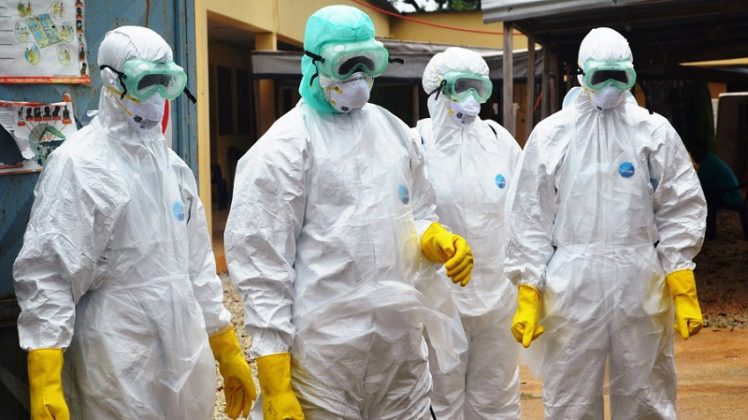Residents of Nyagatare District and those using border crossings between Rwanda and Uganda have expressed their readiness to follow strict measures to prevent the spread of Ebola. The deadly virus recently resurfaced in Kampala, Uganda.
These preventive measures were introduced following the announcement by Uganda’s Ministry of Health on January 31, 2025, confirming a new outbreak of Ebola. The first reported victim succumbed to the disease while receiving treatment at Mulago Hospital in Kampala.
Strict Border Control at Kagitumba
At the Kagitumba border, stringent protocols have been put in place to curb the spread of the virus. Travelers crossing the border must undergo temperature checks, wash their hands with clean water and soap, or use hand sanitizers.
Additionally, individuals traveling from Uganda to Rwanda, and vice versa, are required to provide their personal details. This information allows health officials to monitor them for 21 days, the incubation period of the virus, in case they develop symptoms later.
Baritonda Joseph, a frequent border user, emphasized the importance of hygiene, stating, “We are committed to following these measures, especially those related to sanitation, because we understand their significance.”
Health Monitoring and Tracking System
A medical officer stationed at the border explained that collecting personal information from travelers is crucial for monitoring potential cases.
“We record details such as names, destination, and phone numbers to ensure we can follow up for 21 days. A person may not show symptoms immediately but could develop them later, so this system helps us track their health status.”
Preventive Measures Extended to Other Borders
Apart from Kagitumba, similar preventive measures have been implemented at other border posts, including Buziba and Rwempasha. Authorities aim to prevent the virus from crossing into Rwanda by enforcing strict health protocols at these entry points.
Ebola is highly contagious and spreads through direct contact with bodily fluids of an infected person or contaminated surfaces.
The World Health Organization (WHO) has allocated $1 million to Uganda to help contain the outbreak and prevent it from spreading to neighboring countries. The organization is also working closely with vaccine manufacturers to expedite the delivery of vaccines to Uganda.
Uganda last experienced an Ebola outbreak in 2022, resulting in 55 fatalities out of 143 confirmed cases. With strict preventive measures in place, authorities in Rwanda hope to keep the virus at bay and protect public health.














Post Comment